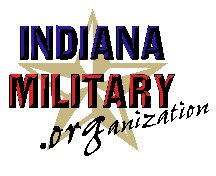|
Chaplains - 1945 |
| Franklin Evening
Star - 27 July 1945 U. S. CHAPLAIN IS RESPECTED - Soldiers Nick-Name Them, "Our Holy Joe"; They Accomplish Duties CAMP ATTERBURY. July 27. "Our Holy Joe" was the trick-name soldiers overseas gave to their chaplains and Atterbury's six men of God agree that they like the title because it pointedly shows that soldiers think them as "regular guys." Post Chaplain Wilbur M. Mix declares that a chaplain who earns the name, "Holy Joe," knows that the men of his outfit have adopted him as "our own." And since the most important duty of any chaplain is to work and play with the men, members of the Army's Chaplains Corp. know that they have accomplished their mission when soldiers mark them with "favorite" titles. Whether overseas or in the States the work of the chaplain remains the same - performing personal services besides regular religious services. Personal services include a multitude of duties, ranging from marriages or planning picnics in the United States to burying the dead or digging tip an extra cigarette on the battlefield. A chaplain's working hours are 'round the clock everywhere. Seven Chapels (eventually 12) In Atterbury seven chapels are' available for post personnel. Here a GI may drop in at any hour to have a man.-to-man talk. If the chaplain, cannot answer or find the solution to the man's problem at the time of the visit. he sees to it that the information is available in short order. Religious services - Protestant, Catholic, and Hebrew - are held weekly in the various chapels which seat 400 men. The chapels are equipped with organs and are comparable, to most small town houses of worship. A chaplain's work does not end with chapel duties. Besides being ready to give advice to men with ' :something on their chest." he makes frequent trips to the hospital to cheer the sick, arranges special recreational events, performs marriages, writes letters. and travels to neighboring cities and towns to fill special requests. |
|
Chaplains in Atterbury are known as 'regular' guys because of their interest in soldiers' problems. While a Chaplain's day never ends, he always has time to meet "man to man". l-r: Chaplain Thomas G. Fields, Reception Center; Post Chaplain Wilbur M. Mix; Chaplain Edmund J. O'Neal, Station Complement. 2nd Row: Chaplain Thomas G. Tobin, Prisoner of War Camp; Chaplain Milford D. Barrick, Reception Station and Separation Center; and Chaplain Milton C. Wilkerson, Reception Center. |
|
Almost as Busy as the
Chaplains...... |
 Page last revised
10/21/2022 Page last revised
10/21/2022James D. West www.IndianaMilitary.org Host106th@106thInfDivAssn.org |

